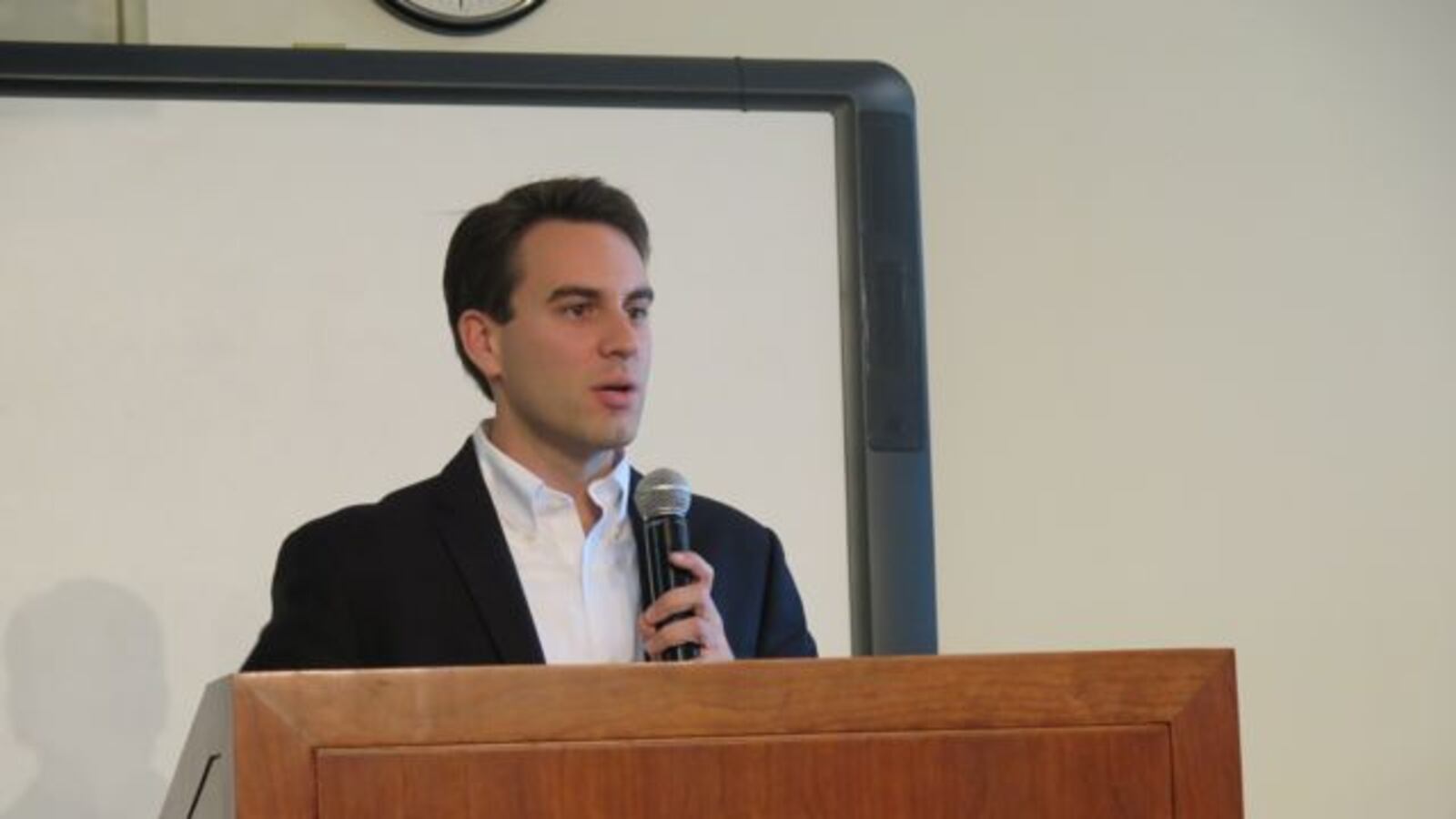(Chalkbeat talked with the 10 candidates running for a spot on the Indianapolis Public Schools board about their backgrounds, educational philosophies, and why and how they want to influence the school district if they are elected Nov. 4. To compare their positions against other candidates, visit our interactive election tracker.)
Butler University economics instructor Josh Owens is making his first foray into elected politics in running this fall for the at-large seat on the Indianapolis Public School Board.
The Shelbyville native, who is a graduate of the London School of Economics, said those who vote for him can expect him to advocate for the long-term best interests of some of the state’s most vulnerable students. He’s running against incumbent school board President Annie Roof, former State Rep. Mary Ann Sullivan, IPS athletic coach and pastor Ramon Batts, and Light of the World Church Pastor David Hampton.
Here is what Owens told Chalkbeat about his background, goals for the district and thoughts on education issues.
Meet the candidates: Attend Chalkbeat and WFYI’s Oct. 23 education conversation event at the Indianapolis Public Library
Owens said he’s enjoyed the campaign so far — even interacting with his challengers.
“They’re all incredibly outstanding people,” Owens said. “These are all candidates who obviously come at it from different perspectives but have just a real heart for helping the community. That’s incredibly encouraging. It’s been fun for me to get to know these individuals, what they think could work and what they think wouldn’t work. We’re having a greally good debate. It appears to cover from one end of the spectrum to the other. If you’re a voter, you’ve got some real choices in the election and that’s exciting.”
His experience mentoring at Arsenal Tech High School led him to believe there’s a disconnect between students and the business community that should be fixed.
“I was working at Angie’s List at the time. Every once is a while, students would ask, ‘OK, so what do you actually do, or what does your day look like?” Really what they were asking was “How did you get there?” We need to get our local businesses connected with the schools. I think we need to sell it to businesses a little more straight forward: This is the future of your workforce. There’s two options: You can either go to other schools to recruit those students, or we can really engage in the assets we have here. We want to educate kids so we can graduate them to some opportunity that’s meaningful to them. Sometimes we make it more complicated than it is.”
He thinks trust is the heart of the issue with the community’s skepticism over a new state law that allows the district to easily partner with charter schools.
“They’re skeptical of what the board might do with that, and that has very little to do with the state law,” Owens said. “It seems to me the biggest issue is trust and the community is having a hard time trusting the board. There’s been a lot of change in IPS over the past two and a half years. Anytime there’s change, there’s going to be trust issues. What I can say is if you give me four years, I’m going to be in the community at our churches and in our neighborhood groups. Every single day, I’m going to look for ways to improve the outcomes in those schools and increase graduation rates.”
Owens thinks IPS needs to increase the number of seats in its best programs and replicate what already works.
“There should be as many opportunities as possible (for students) to attend the school that’s best for them,” Owens said. “When there’s magnet schools that are succeeding, we need to rapidly increase the number of seats. It’s not a surprise what those prescriptions typically are: it’s a very involved principal and a very committed and stable teaching base. Those two things together almost always can overcome anything else going on in a school.”
Big investments in tutoring, remediation and teacher professional development are needed to improve graduation rates, he says.
“We need to invest heavily in tutoring and remediation to help students who fall behind stay with their class,” Owens said. “We’re going to have to look at new online solutions. I think that should be the core of our turnaround overall. The second thing we need to really invest in is teacher development and principal development so we get leaders at the local neighrbhood schools that are outstanding. If we find efficiencies and funnel our resources toward those two goals, in four years we’re going to see some amazing gains.”
He believes his background in budgeting and finance will help him make smart decisions for the district.
“Over 12 years of schooling we’re going to invest about $100,000 in each student,” Owens said. “How best can we do that? Can we get past the partisan politics and the bickering? How can we improve outcomes? There’s schools in this city that are doing that. There’s no reason we can’t. We’re going to have to be creative, smart with our budgeting. I know we have the ideas to be able to make it happen.”
Read more: Six critical questions the IPS school board race will answer

